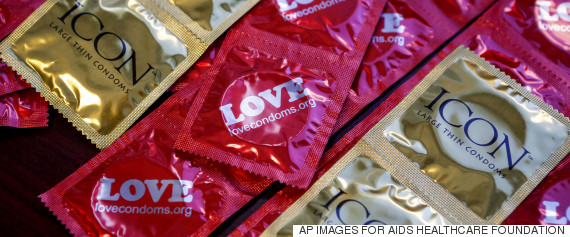
Now this would be the ultimate Mother’s Day gift.
Over the next 15 years, just by using existing tools and proven methods, the world could save 3.3 million moms from succumbing to pregnancy and childbirth complications, a new study published by the Lancet concluded.
Funded by the Bill and Melinda Gates Foundation, the report found that by investing in family planning, safe deliveries, and expanding pre- and post-natal care, countries can close the maternal health gap between the rich and the poor.
Low-income countries will require some outside assistance to help achieve these health goals, but if economies in middle-income countries grow as expected, they should be able to rely on domestic sources to better protect mothers from preventable deaths.
“The key to progress was knowing what already works -- and bringing those tools and techniques to more places, more reliably,” Microsoft co-founder Bill Gates wrote in a blog post for Quartz.
Here’s how developing countries are making great strides, and planning to do even better, to improve mothers’ chances of surviving and thriving.
Universal Access to Contraception Could Become a Reality

More than 220 million women in developing countries who don’t want to get pregnant, don’t have access to contraceptives and family planning information.
In 2012, about 80 million women in developing countries had unplanned pregnancies.
One of the main issues are weak distribution systems, according to the Bill and Melinda Gates Foundation.
To help improve those systems, and increase the number of mothers they reach, the UNFPA’s Maternal Health Thematic Fund, which operates in 43 countries, provides first-time mothers with family planning education.
The group also partners with ministries and NGOs to give adolescents access to youth-friendly health packages, which include various affordable forms of contraception.
And by 2030, the U.N. has set the goal of ensuring "universal access to sexual and reproductive health care services.”
More Women Will Have Skilled Birth Attendants
In 2012, 40 million births in developing regions did not have skilled health personnel present, according to U.N. Women.
One of the issues is that midwives are often relegated to the bottom of the health services ladder, but their role is actually indispensable, according to WHO. When a midwife is present during a delivery, it’s less likely that emergency interventions will be needed.
To incentivize more women to become midwives in rural areas, and actually remain in those clinics instead of relocating to more desirable workplaces in cities, UNFPA has developed a compelling training program. The goal is to create competitively paying jobs for women, and ensure that every woman can deliver with a skilled midwife present.
Since 2008, the number of midwives in Ethiopia, for example, has increased by 3,000 to 4,700.
A skilled birth attendant can help prevent a host of complications, including obstetric fistula, which is a hole that develops between the vagina and rectum or bladder due to obstructed labor and can lead to incontinence. More than 1 million women have the preventable and treatable condition, but fewer than 20,000 get the care they need, according to the Fistula Foundation.
Countries Will Expand Pre- and Post-Natal Care Services
By 2030, the U.N. has vowed to reduce preventable maternal deaths from 210 deaths per 100,000 live births to fewer than 70.
To deliver better care, the UNFPA is making essential medicine and reproductive health services more available, and is paying particularly close attention to adolescent moms who face unique risks.
For example, every year, about 3 million teenage girls undergo unsafe abortions, according to WHO.
To break the cycle of poverty among this demographic, and reduce their health risks, the UNFPA provides comprehensive sex and reproduction health services and education options for adolescent moms.
But oftentimes, women just need access to something as simple as soap and water for themselves and their babies to survive the delivery.
Realizing how vast the need is, NGO Freshwater Project International is conducting a two-year pilot program to provide affordable water systems to birthing centers in rural areas of Malawi.
With support from Water.org and its local partners, women organize building community wells and take out small loans to get household water connections, innovations that play key roles in reducing maternal deaths, according to the aid organizations.
"With the right investments, we can close the health gap between rich and poor countries -- meaning that every country in the world will have child-mortality rates that are as low as the rate in America or the United Kingdom in 1980," Gates wrote in his eponymous blog. "That would be one of the humanity’s greatest accomplishments ever."



